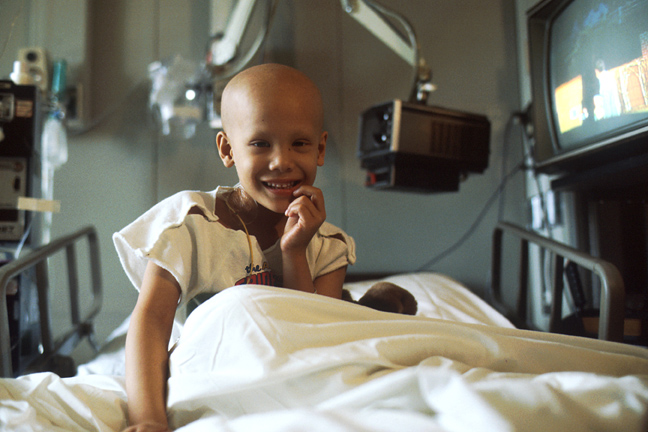The costs of vaccine refusal

This is who you protect when you get a vaccine.
Source: National Cancer Institute, Bill Branson (Photographer). Public domain.
Hubby saw a series of patients in his clinic last week, and an uncomfortable number of them have not been vaccinated against the COVID-19 coronavirus. As he engaged them in conversation, he discovered a surprising variety of explanations and excuses for hesitancy or refusal. (Here’s a nice article about some of the categories: “COVID skeptics, Cost-anxious, System distrusters, and the Watchful”.) Honestly, a think a lot of people are not really capable of explaining their reason(s). They just have a gut feeling, and they are accustomed to making decisions from the gut.
If humans were creatures of pure reason, everyone would be clamoring for the vaccine because as of today, May 24, 2021:
- 285,000,000 doses of vaccine have been jabbed into Americans’ arms
- About 3 Americans have died of an unusual blood clotting problem that may have been triggered by the Johnson & Johnson vaccine (adverse events and outcomes)
Meanwhile,
- 33,000,000 Americans have had a documented case of COVID
- 587,000 Americans have died of COVID
Data source: CDC
The rough math is highly persuasive. Vaccine risk of dying: 1 in 100,000,000. COVID risk of dying: 1 in 100.
{Note that the clotting risk is only linked to the J&J vaccine, not to the two-dose mRNA-based ones, so if you’re concerned about that, seek a Moderna or Pfizer shot.}
The vaccines are safe. The vaccines are highly effective—they strongly protect against severe COVID disease, and they greatly reduce the chance you will unknowingly transmit the virus to someone else.
But we’re creatures of story, not logic, and despite our best efforts at persuasion and access, I doubt we’ll get past 70% of all Americans vaccinated (if that much).
Are unvaccinated people a problem?
Many vaccine refusers justify their decision as a “personal” one: my body, my choice. I find this ironic because it’s the same faulty argument made to support unrestricted abortion rights. In both cases, another person is involved, and your choice will have lethal consequences for them.
Vaccination isn’t all about you. It’s about us.
So let’s talk about the ways in which refusing the vaccine can cause problems.
Category #1: Risk to the unvaccinated person
This is the category most unvaccinated people focus on, or in some cases, the only category they are aware of. If it were the only category, then the choice to skip the vaccine would indeed be a mostly personal one.
- COVID-19 disease in the unvaccinated person. If unvaccinated people catch the virus, they may get sick; end up in a hospital; die; or recover and suffer a long-term complication.
Category #2: Risk to others or the community
- Unvaccinated person is contagious and spreads the virus to a healthy vaccinated person. This is the least concerning problem with vaccine refusal. Most vaccinated people will be protected.
- Unvaccinated person is contagious and spreads the virus to a vaccinated person with other health problems, a weak immune system, or to a person who cannot be vaccinated for medical reasons. This is the heart of the matter: MY vaccine protects YOU. Children with cancer and organ transplant recipients are examples of the many Americans whose own immunity needs help from the “herd.”
- Virus continues to circulate among unvaccinated people, making booster shots important. It’s not clear yet how long immunity will last after vaccination. If it fades over time but the virus is rare at that point, then we won’t need boosters. But if immunity wanes AND the virus is still out there breeding in the unvaccinated population, then booster shots will be necessary
- Virus continues to circulate among unvaccinated people, generating new variants. Every time the coronavirus copies itself to make a new virus, there’s a chance of mutation. Given enough chances, new variants of the coronavirus will emerge, as we have already seen. Some of those variants might escape the immune protection of the vaccines. This is a somewhat theoretical risk, and it’s one we can deal with if we must by modifying the vaccines and giving everybody a booster shot. But wouldn’t it be better if we didn’t have to?
For these reasons, the decision not to take a COVID vaccine is more than a personal health choice. It’s a choice with consequences for others. Vaccination is a civic act. If you are hesitant about getting vaccinated, please consider how you can protect others by bravely facing your fears and the small personal risk by going for your shot.
Have you been vaccinated yet? Every American age 12 and up is now eligible.
In California, visit https://myturn.ca.gov/ to find appointments for a FREE vaccine near you.
Amy Rogers, MD, PhD, is a Harvard-educated scientist, novelist, journalist, and educator. Learn more about Amy’s science thriller novels, or download a free ebook on the scientific backstory of SARS-CoV-2 and emerging infections, at AmyRogers.com.


